To embed children’s best interests in the design and development of digital products and services, we map existing and emerging rights-based and value-sensitive guidance. Combined with consultations with children, industry and other relevant actors, and tested through industry case studies, the outcome will be practical child rights-respecting guidance for digital innovators.
Child Rights by Design
Child Rights by Design is a principled vision to inspire innovators to realise children’s rights in their digital products and services. This design guide provides practical pathways and resources for implementing the United Nations Convention on the Rights of the Child (UNCRC) in relation to the digital environment according to the Committee on the Rights of the Child’s General Comment No. 25. (For home printing, please click here.)
Publications
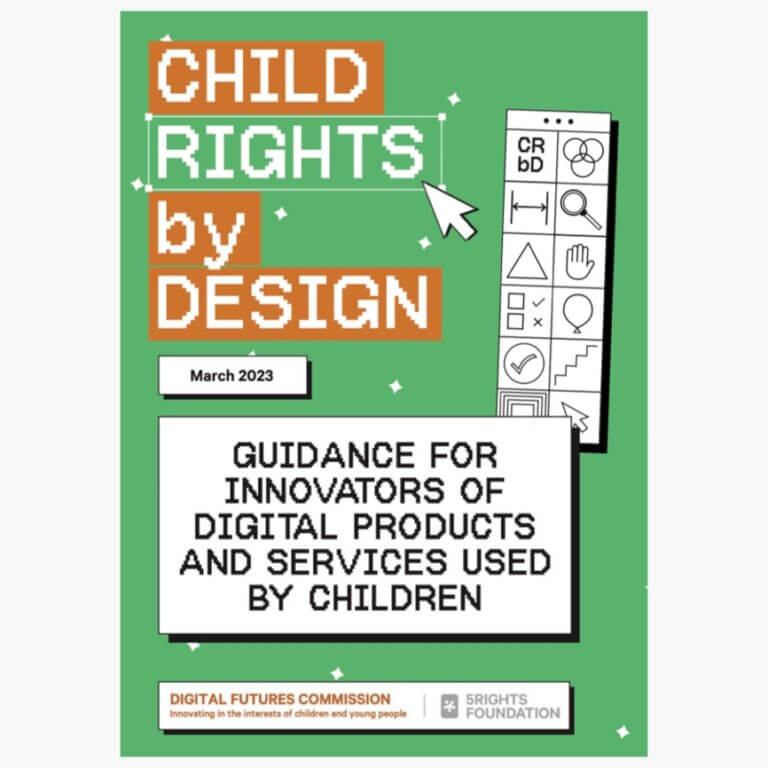
Child Rights by Design (CRbD) synthesises the 54 articles of the UN Convention on the Rights of the Child (UNCRC) into 11 design principles for digital products and services. This guidance for innovators of digital products and services likely to be used by or impact on children offers practical design guides, resources and an 11-point check list to help digital innovators embed children’s rights into their products and services.
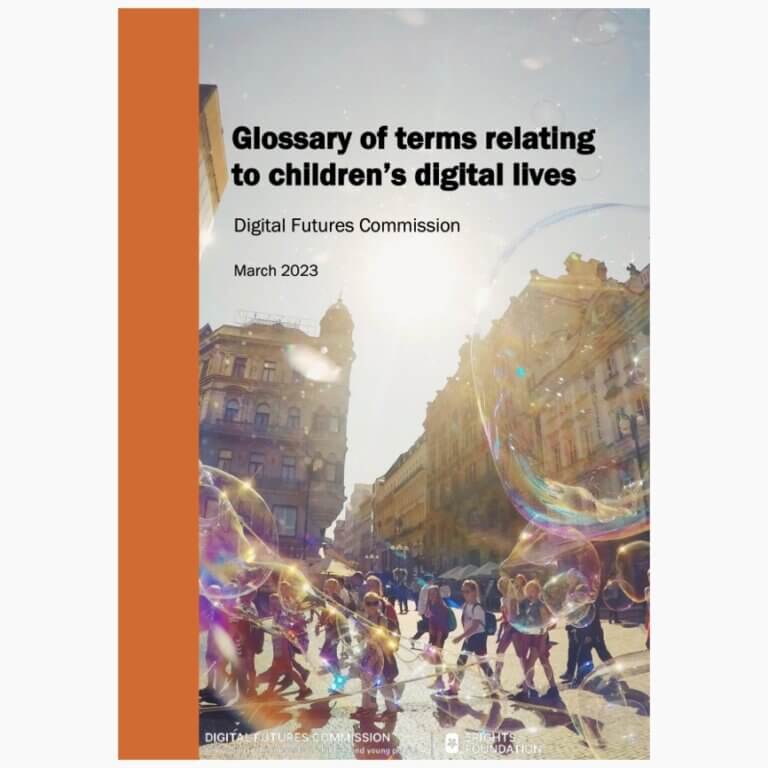
This glossary is for researchers, policymakers, and practitioners focusing on children’s digital lives in the areas of play, education, data, and innovation. It gathers definitions from various fields to create a useful resource for experts and non-experts working to safeguard and empower children in the digital age. Having a shared vocabulary can encourage constructive discussions about children’s rights and the digital landscape.
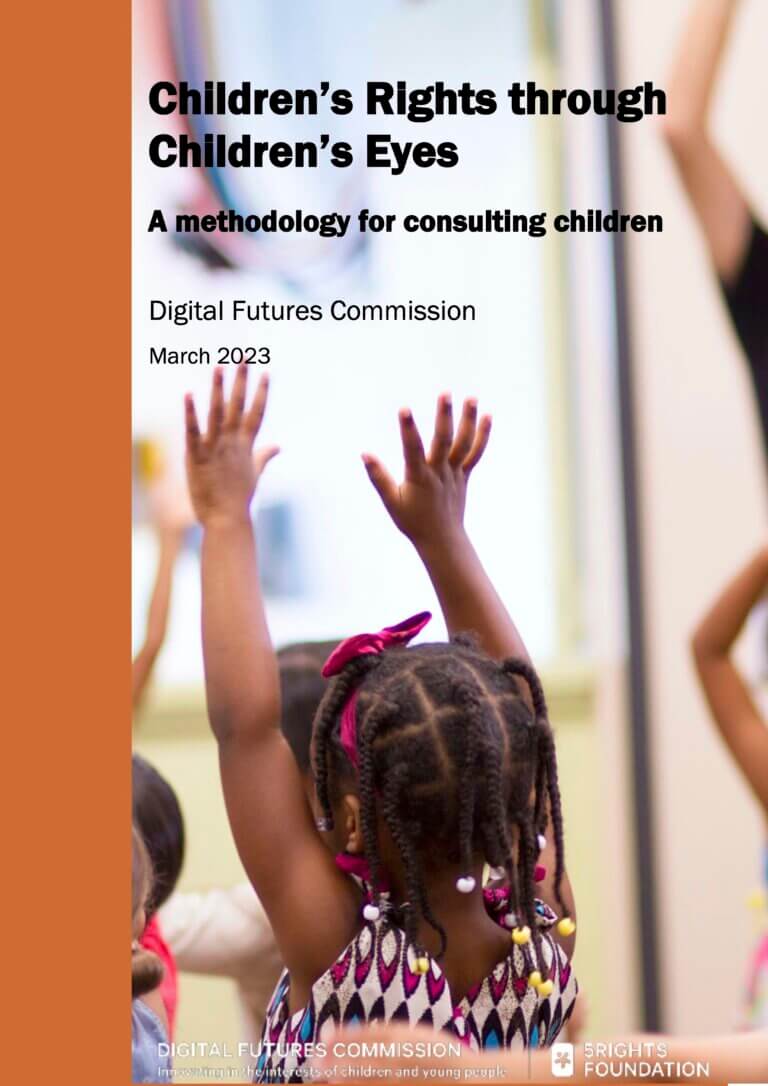
This report details how we consulted children in the summer of 2022 to gain children’s perspectives on how digital affordances enhance or undermine their rights and identify what needs to change to make the digital environment respectful of children’s rights by design.
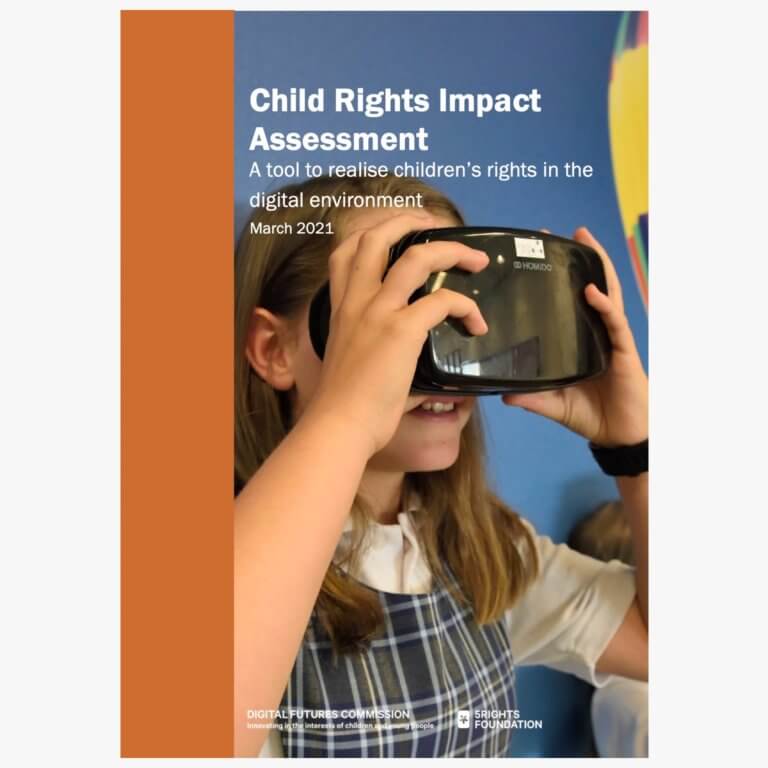
Child Rights Impact Assessment (CRIA) has been introduced as a tool for States and businesses to systematically consider child rights in their operations. Recognising CRIA’s potential, the Digital Futures Commission examines the feasibility and benefits of CRIA in the development and provision of digital products and services. This report identifies a pathway and resources for CRIA in the digital environment.
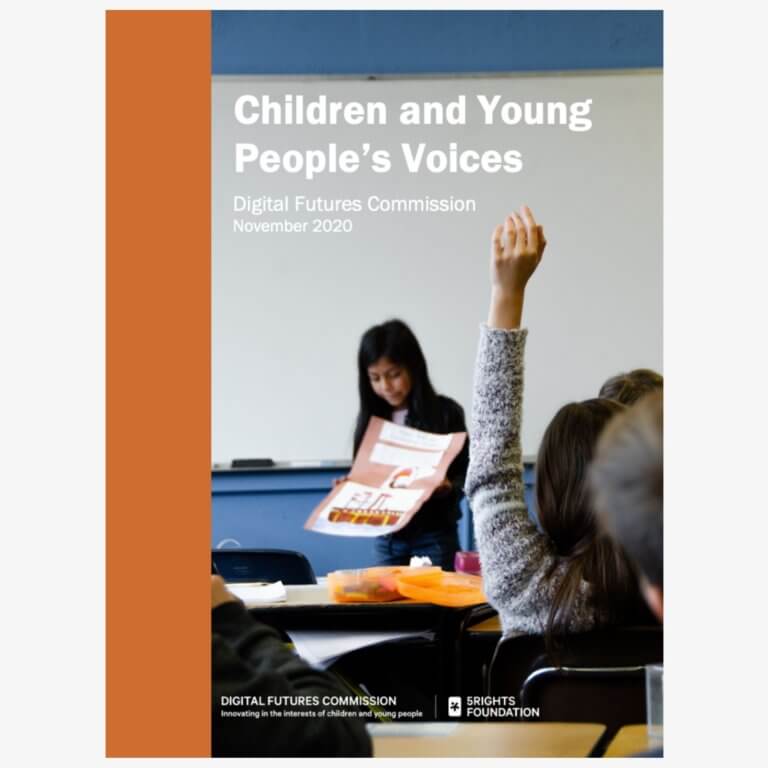
We identified recent UK-based consultations with children and young people relevant to the DFC’s work streams, also including some valuable older material and some qualitative research. This review highlights the voices of those aged up to 18 years old, selected from 18 consultations and related research.
Blogs

Let Kids Wonder, Question, and Make Mistakes: How the Designers of Children’s Technology Think about Child Well-being
What practical issues arise when involving children in designing digital products and services, and what can be learned from practitioners’ experiences? Given the Digital Futures »
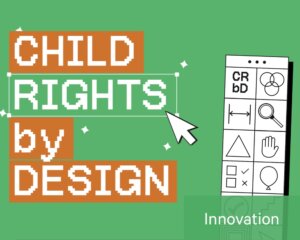
Child Rights by Design: our guidance for innovators toolkit is finally here!
by Sonia Livingstone and Kruakae Pothong Child Rights by Design is a principled vision to inspire innovators to help realise children’s rights when designing digital »

Our new glossary of terms relating to children’s digital lives
by Ayça Atabey At the Digital Futures Commission (DFC), we aim to recentre our increasingly digitised world on the needs of children and their rights. »

Towards Child Rights by Design: Embedding children’s voices in guidance for innovators
Kruakae Pothong and Sonia Livingstone The Digital Futures Commission is about to launch yet another flagship toolkit to guide digital innovation towards Child Rights by »

When are commercial practices exploitative? Ensuring child rights prevail in a digital world
By Ayça Atabey, Kruakae Pothong, Sonia Livingstone. Almost every digital interaction is an exchange. Often this is underpinned by an invisible transaction in which the »

Privacy matters when enabling a safer online experience for children
By Kruakae Pothong & Sonia Livingstone Children’s life these days are almost digital by default. With moves towards the metaverse, the digital and physical worlds »